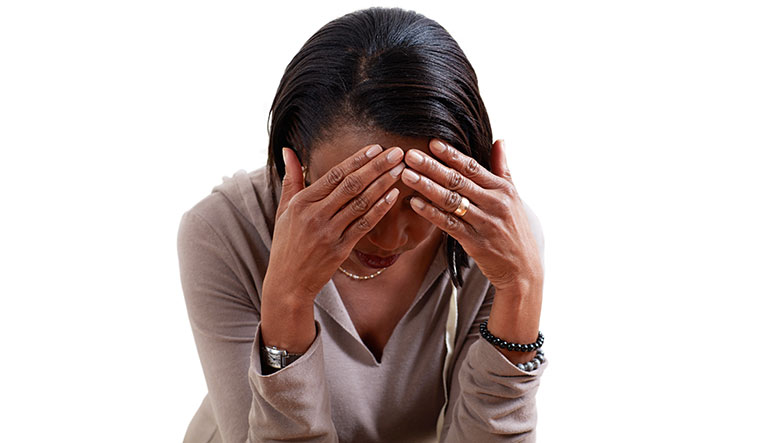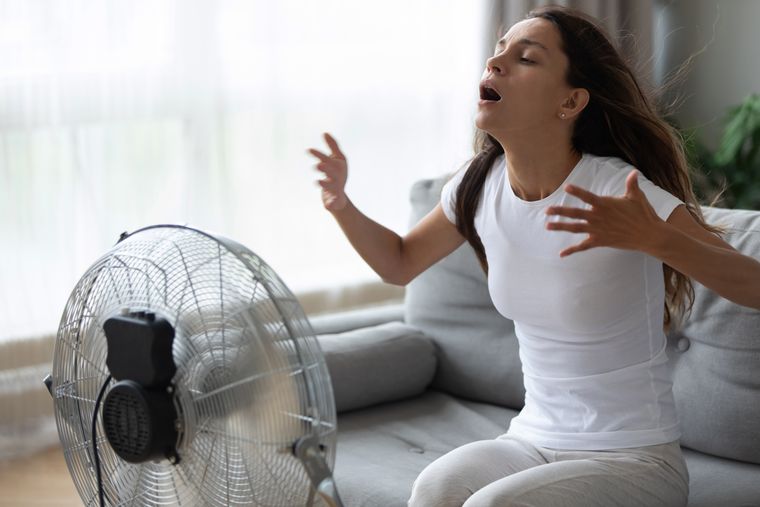PATIENTS WITH ACUTE heart failure may be nearly twice as likely to die if they get Covid-19, according to the study published in the journal ESC Heart Failure. The study highlights the need for heart failure patients to take all the necessary precautions to avoid getting Covid-19 as well as prioritising them for vaccination.
Diabetic patients who take a class of drugs known as sodium-glucose co-transporter 2 inhibitors have an increased risk for a potentially fatal complication called diabetic ketoacidosis if they contract Covid-19, according to a study published in the journal AACE Clinical Case Reports. The study authors recommend avoiding these medications during SARS-CoV-2 infection.
PRESSURE PERIL
EVEN SLIGHTLY ELEVATED blood pressure in middle and older age can accelerate memory loss and cognitive problems, according to a Brazilian study published in the journal Hypertension.
The researchers analysed blood pressure and cognitive health information of 7,063 adults whose average age was about 59 years at the start of the study. Cognitive function rapidly declined for participants regardless of whether hypertension started in middle age or older age. The faster declines were evident even in participants with prehypertension, a condition of slightly elevated blood pressure, and even if they had high blood pressure only for a short duration.
Those with uncontrolled hypertension showed a faster decline in memory and cognitive function compared to adults who controlled their blood pressure with medication.
The good news: effectively treating high blood pressure with medication and lifestyle changes at any age reduced or prevented this acceleration.
SLEEP WELL FOR A SAFE HEART
PEOPLE WHO HAVE healthy sleep habits are less likely to suffer from heart failure.
To examine the relationship between healthy sleep habits and heart failure, the researchers analysed data on 4,08,802 adults aged 37 to 73. Each participant was given a “healthy sleep score” of 0 to 5 based on five healthy sleep practices: sleeping seven to eight hours per night, not snoring, no frequent insomnia, no excessive daytime sleepiness, and rising in the morning.
There were 5,221 cases of heart failure during a median follow-up of 10 years. Participants with the healthiest sleep patterns (score of 5) had a 42 per cent lower risk of heart failure compared to people with an unhealthy sleep pattern, even after accounting for other risk factors such as diabetes, hypertension, smoking and alcohol use, and genetic variations.
The risk of heart failure was also independently associated with each sleep habit: 8 per cent lower in early risers; 12 per cent lower in those who slept 7 to 8 hours daily; 17 per cent lower in those who did not have frequent insomnia; and 34 per cent lower in those reporting no daytime sleepiness.
FIVE-STEP FIGHT
FOLLOWING A FIVE-STEP lifestyle plan can considerably ease the symptoms of gastroesophageal reflux disease (GERD), also known as chronic heartburn, and reduce, or even eliminate, the need for medications in people suffering from the condition.
The five-step diet and lifestyle factors include avoiding smoking, maintaining a healthy weight, exercising regularly, eating healthy, and limiting coffee, tea and sodas to two cups daily.
The study published in the journal JAMA Internal Medicine included data from almost 43,000 women aged 42 to 62 who answered questions about heartburn symptoms from 2005 to 2017.
Those who adhered to all five factors reduced GERD symptoms by 37 per cent. The more factors they adhered to, the lower their risk of symptoms. Following the guidelines also reduced symptoms in women taking common heartburn medications.
TEST YOUR HEART HEALTH
IF YOU CAN climb four flights of stairs in less than a minute, your heart is in good shape. But if it takes you more than one-and-a-half minutes to ascend four flights of stairs, your health is suboptimal, and it would be a good idea to consult a doctor, says a study presented at the meeting of the European Society of Cardiology.
The study included 165 patients who had been referred for exercise testing. All of them had known or suspected coronary artery disease.
The participants first walked or ran on a treadmill, the intensity gradually increasing and continuing until they became exhausted. Their exercise capacity was measured as metabolic equivalents (METs), which has been linked to mortality rate.
After resting for 15 to 20 minutes, the patients were asked to climb four flights of stairs (60 stairs) at a fast pace without stopping, but also without running. The researchers then compared the patients’ METs achieved during exercise testing and the time it took for them to climb four flights of stairs.
Those who climbed the stairs in less than 40–45 seconds achieved more than nine METs. Ten METs during an exercise test is linked with a low mortality rate (1 per cent or less per year, or 10 per cent in 10 years).
However, those who took 1.5 minutes or longer to climb the stairs achieved less than eight METs, which translates to a mortality rate of 2–4 per cent per year, or 30 per cent in 10 years.
Did You Know?
Just one alcoholic drink (120ml glass of wine, 330ml of beer or 40ml of spirits) a day was linked to a 16 per cent increased risk of atrial fibrillation.
European Heart Journal
DO MULTIVITAMINS REALLY MAKE YOU HEALTHY?
THE HEALTH BENEFITS of multivitamins may all be in the mind of the users. However, a US study published in the journal BMJ Open did not find any clinically measurable health benefits when people who took multivitamins without known vitamin or mineral deficiencies were compared to non-users.
The researchers analysed data on 21,603 adults; 4,933 of the participants regularly took multivitamin/mineral supplements, while 16,670 respondents did not.
Multivitamin users considered themselves healthier than nonusers. They self-reported 30 per cent better overall health than nonusers. But there was no difference between those who did and did not take the supplements in the history of 10 chronic conditions like hypertension, diabetes, asthma and arthritis; the presence of 19 common health conditions, including infections, memory loss, neurological and musculoskeletal problems; severity of current psychological distress and rates of needing help with daily activities.
YOUNG, WILD AND LONELY
SURPRISING RESULTS OF a study, published in the Journal of Clinical Psychiatry, has found that young adults in the 20s are the loneliest, while people in the 60s are the least lonely.
The findings were based on a survey of 2,843 participants, aged 20 to 69 years, from across the United States, in 2019.
Levels of loneliness were highest in the 20s, followed by the mid-40s, and lowest in the 60s.
People in the 20s usually face high stress while trying to establish a career and find a life partner.
“A lot of people in this decade are also constantly comparing themselves on social media and are concerned about how many likes and followers they have. The lower level of self-efficacy may lead to greater loneliness,” says the study author.
Lower levels of empathy and compassion, smaller social circles, lack of a spouse or a partner, and sleep problems were predictors of loneliness across all age groups. On the contrary, compassion appeared to reduce the level of loneliness at all ages.
Did You Know?
For every hour of a delay from the onset of heart attack symptoms to an artery-clearing procedure called angioplasty, the risk of death or hospitalisation for heart failure within a year rose 11 per cent.
Circulation: Cardiovascular Intervention
AGE MYTH BURSTS
AGE MAY NOT be a factor in the success of vasectomy reversal.
A US study published in the journal Urology finds that men over 50 who undergo a vasectomy reversal procedure have the same rate of pregnancy with their partners as those under 50.
For the study, the researchers analysed the results of vasectomy reversal in 2,777 men over 50 and 353 men under 50. All the procedures were performed by the same surgeon.
The partners of 33.4 per cent of the younger group and 26.1 per cent of the older group got pregnant after the procedure.
The odds of successful pregnancy were higher when the woman was under 35 and/or the man had the vasectomy less than 10 years ago, and lower if the man was smoking.
According to the researchers, one reason why older men were usually not as successful as younger men in reaching pregnancy was because older men tend to have older female partners.
Did You Know?
Participants given a cocoa drink enriched with flavanols performed 11 per cent faster on cognitive tasks than when drinking a non-flavanol enriched-drink.
Scientific reports
FAN THERAPY FOR HELP
MANY ADVANCED CANCER patients suffer from dyspnea or shortness of breath.
Blowing air from a fan into the face of patients with advanced cancer was more effective in easing breathlessness than other pharmacologic interventions, according to a US study published in the journal JAMA Oncology.
The conclusion was drawn from a review of 29 clinical trials involving 2,423 adults with advanced cancer who suffered from breathlessness.
Nonpharmacological interventions that helped ease breathlessness in hospitalised patients included fan therapy and bi-level ventilation (air pressure delivered through a face mask covering the mouth and nose). Both therapies provided relief lasting from a few minutes to a few hours.
For outpatients, acupressure and reflexology, as well as interventions that combined activity and rehabilitation with behavioural, psychosocial and integrative medicine provided relief lasting for a few weeks to months.
On the contrary, medications such as opioids and anti-anxiety drugs had limited impact in improving breathlessness and can cause side effects such as drowsiness and constipation.
CONTRIBUTOR: SHYLA JOVITHA ABRAHAM









